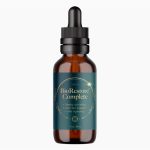Turmeric, a vibrant yellow-orange spice derived from the root of the Curcuma longa plant, has been hailed as a wonder ingredient for thousands of years. Used extensively in Indian and Middle Eastern cooking, turmeric is also a staple in traditional medicine systems such as Ayurveda and Chinese medicine. In recent years, scientific studies have begun to validate the health benefits long attributed to this golden spice. This article delves into the extensive advantages of turmeric, its active compound curcumin, and its potential role in managing various health conditions.
At the heart of turmeric's medicinal properties is curcumin, a compound renowned for its potent anti-inflammatory and antioxidant effects. These properties are essential because they target oxidative stress and inflammation, two significant contributors to chronic diseases. However, turmeric contains only about 2-6% curcumin, meaning that consuming the spice alone may not suffice for therapeutic benefits, thus bringing turmeric supplements into the spotlight.
Turmeric and Its Historical Significance
For over 4,000 years, turmeric has been used to treat many conditions, ranging from infections to digestive issues and even cancers. Historically, turmeric's application was not just limited to its culinary uses but extended into medicine. In ancient Ayurvedic practices, turmeric was a go-to remedy for liver problems, skin diseases, and wounds. Chinese medicine also recognized its benefits, particularly in treating digestive and liver problems.
In modern times, the interest in turmeric has surged, propelled by its inclusion in a growing number of studies to understand its therapeutic potential. Whether used in raw form, as a powder, or in supplements, turmeric remains a focus of traditional and modern medicinal research.
The Science Behind Curcumin
Curcumin is the most studied component of turmeric and is responsible for many of its health benefits. It acts as a potent antioxidant, combating free radicals that cause cellular damage, tamper with DNA, and lead to cell death. This capacity to neutralize free radicals is crucial because oxidative stress is linked to aging and many chronic diseases, including cancer and cardiovascular diseases.
Additionally, curcumin's anti-inflammatory properties are noteworthy. It reduces inflammation by lowering the levels of two enzymes in the body known to cause inflammation. This mechanism can be particularly beneficial in inflammatory conditions such as arthritis, where pain and swelling can significantly impact the quality of life.
Furthermore, curcumin can inhibit platelet aggregation, preventing blood clots' formation. This anticoagulant property adds another layer to turmeric's beneficial profile, particularly in cardiovascular health.
Health Benefits of Turmeric
Rheumatoid Arthritis
Rheumatoid arthritis (RA) is a chronic autoimmune condition characterized by inflammation, pain, and joint stiffness. The anti-inflammatory properties of curcumin have shown promise in alleviating these symptoms. Several studies suggest that curcumin can rival the effectiveness of common nonsteroidal anti-inflammatory drugs (NSAIDs) in reducing joint pain and inflammation without the side effects associated with long-term NSAID use.
For instance, a study by Amalraj et al. found that a highly bioavailable curcumin formulation significantly improved symptoms and diagnostic indicators in patients with rheumatoid arthritis. This finding points to curcumin's potential as a complementary treatment for RA.
Osteoarthritis
Osteoarthritis (OA) is another prevalent form of arthritis characterized by the gradual degradation of joint cartilage. Turmeric's anti-inflammatory properties can also benefit those suffering from OA. According to research by Healthline, curcumin supplements have been shown to provide pain relief almost equivalent to that of NSAIDs in some patients. However, they note that the evidence is still emerging, and more extensive studies are needed to prove these benefits.
Digestive Health
Turmeric has long been used to treat various digestive issues, a practice that modern science supports. Curcumin stimulates the gallbladder to produce bile, which aids digestion. It can also soothe the digestive tract, reducing symptoms of indigestion and dyspepsia. The German Commission E, a scientific advisory board, has recognized turmeric as a viable treatment for digestive problems.
Moreover, curcumin's anti-inflammatory and antioxidant properties can benefit patients with inflammatory bowel diseases (IBD) such as Crohn's disease and ulcerative colitis. These conditions are characterized by chronic digestive tract inflammation, and studies suggest that curcumin can help manage flare-ups and maintain remission.
Cancer Prevention and Treatment
One of the most exciting avenues of research into turmeric involves its potential role in cancer prevention and treatment. Laboratory studies suggest that curcumin can inhibit the growth of cancer cells and even induce cancer cell death. While most of these studies have been conducted in test tubes or on animals, early human trials are promising.
Curcumin is believed to interfere with several molecular pathways involved in cancer development, including the proliferation and spread of cancer cells. For example, it can inhibit the activity of enzymes that promote inflammation and tumorigenesis, making it a potential adjunct therapy in cancer treatment protocols.
Cardiovascular Health
Curcumin also contributes to heart health. It improves the function of the endothelium, the lining of the blood vessels, which is crucial for regulating blood pressure and preventing thrombosis. A study in rats showed that curcumin's effect on endothelial function was comparable to that of exercise. Additionally, its antioxidant properties help reduce oxidative stress, which is a significant factor in the development of heart disease.
Neuroprotective Effects
Emerging research indicates that curcumin may benefit brain health and reduce the risk of neurodegenerative diseases such as Alzheimer's. Curcumin can cross the blood-brain barrier, which most drugs cannot do. Once in the brain, it can reduce inflammation and oxidative damage, two critical factors in neurodegeneration.
In animal studies, curcumin has been shown to decrease the buildup of amyloid plaques, which are associated with Alzheimer's disease. Although more research is needed, these findings suggest that curcumin could potentially delay or even prevent the onset of Alzheimer's.
Practical Uses of Turmeric
Culinary Uses
Turmeric is a versatile spice commonly used in curries, soups, and stews. It can also be added to smoothies, teas, and baked goods for a healthful twist. Combining turmeric with black pepper can enhance curcumin absorption due to the presence of piperine in black pepper, which increases curcumin's bioavailability by 2,000%.
Supplements
Given turmeric's low bioavailability of curcumin, supplements are a popular option for those seeking its health benefits. Curcumin supplements often contain piperine or are formulated for enhanced absorption to ensure the body can effectively utilize the active compound.
However, it is essential to consult with a healthcare provider before starting any supplement regimen, particularly for individuals with existing health conditions or those taking medications, as curcumin can interact with certain drugs.
Topical Applications
Turmeric is also used in topical treatments for skin conditions. Its anti-inflammatory and antibacterial properties effectively treat acne, eczema, and psoriasis. Turmeric paste can be applied directly to the skin, or it can be found in various commercial skincare products.
Potential Side Effects and Considerations
While turmeric and curcumin are generally considered safe, mainly when consumed as spices, there are some potential side effects and considerations, especially when taking supplements.
Gastrointestinal Issues
High doses of curcumin can cause gastrointestinal issues such as nausea, diarrhea, and indigestion. It is advisable to start with a lower dose and gradually increase it while monitoring for any adverse effects.
Blood Thinning
Curcumin's ability to inhibit platelet aggregation means it can act as a blood thinner. People taking anticoagulant or antiplatelet medications should use curcumin supplements cautiously and under medical supervision to avoid excessive bleeding.
Allergic Reactions
Although rare, some individuals may experience allergic reactions to turmeric or curcumin. Symptoms can include skin rashes, itching, and shortness of breath. If any allergic reactions occur, discontinue use and seek medical advice.
Pregnancy and Breastfeeding
There is limited research on the safety of curcumin supplements during pregnancy and breastfeeding. Therefore, it is wise for pregnant or breastfeeding women to avoid these supplements or consult with their healthcare provider before use.
Conclusion
With its active compound curcumin, turmeric stands out as a promising natural remedy with many health benefits. Its anti-inflammatory and antioxidant properties make it valuable to culinary and medicinal applications. While turmeric alone may not offer significant therapeutic effects due to its low curcumin content, supplements can provide the necessary potency to achieve health benefits.
From managing arthritis and improving digestion to its potential roles in cancer prevention and cardiovascular health, turmeric is a powerhouse spice with a bright future. However, as with any supplement or alternative treatment, it is crucial to consult with healthcare professionals to ensure its safe and effective use.
For those interested in exploring the health benefits of turmeric, several high-quality resources offer further information:
- Learn more about turmeric and arthritis.
- Discover scientific studies on curcumin.
- Investigate turmeric's digestive health benefits.
As research unfolds, turmeric's role in natural medicine and wellness looks more promising than ever. Whether integrated into your diet or taken as a supplement, this golden spice offers a radiant path to better health.










